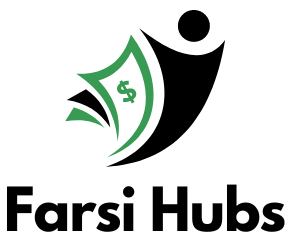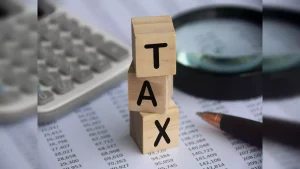Tax season can be stressful, but it’s also an opportunity to save as much tax as possible if you plan. When you file your taxes, make sure you don’t miss these five easy ways to save money.
Get as much tax relief as possible
To get the maximum tax deduction, you first need to know exactly what expenses can be written off. Mortgage interest, student loan interest, medical expenses, and charitable contributions are all common benefits. But you may also be able to get many lesser-known benefits, such as the cost of a home office, college expenses, and even certain types of work-related expenses.
To reap these benefits, it is important to keep good records. Keep all records, bills, and other documents that can help you explain your deductions. Having the right paperwork will not only support your claim but also keep you safe in the event of an audit.
Putting money in a retirement account
You can significantly reduce your taxable income by putting money into a retirement account such as a 401(k) or IRA. Often these payments are made pre-tax, meaning they are deducted from your income before taxes are calculated. This can help reduce your overall tax bill.
There are different types of retirement plans, each with its benefits and limits on how much you can contribute. For example, traditional IRAs and 401(k)s allow you to grow your money tax-free, while a Roth IRA allows you to withdraw your money tax-free when you leave.
Tax credits can help you
One of the best ways to reduce your taxes is to obtain tax credits. Credits immediately reduce your tax bill, while deductions reduce the amount of tax you have to pay. The Earned Income Tax Credit (EITC), Child Tax Credit, and Education Credit are all popular tax credits.
It’s important to understand what you need to do to qualify for each tax credit. Some points are refundable, meaning they can reduce your tax bill to zero and give you a return. Other credits, on the other hand, can only reduce your taxes to zero and no further.
Put money in a health savings account (HSA)
HSAs are a great way to save on medical costs while lowering your tax income. People can make pre-tax contributions and the money can be used tax-deductibly for certain medical expenses. This can help you save a lot on taxes if you have ongoing medical expenses.
You must have a high-deductible insurance plan (HDHP) to contribute to an HSA. The annual contribution limits may change from time to time to adjust for inflation. To get the most out of your contribution, you should always be aware of the current limitations.
Make informed investment decisions
Investing in a way that minimizes taxes can save you a lot of money. That means choosing investments that can help you save on taxes, such as local bonds, which are generally not taxed by the federal government, or investing your money in mutual funds that focus on tax efficiency.
How you handle cash gains and losses can also affect your tax bill. Capital gains of a longer duration are taxed less than capital gains of a shorter duration. This means you may pay less tax if you hold the item for more than a year before selling it. A technique called “tax loss harvesting” can also be used to reduce taxable income by offsetting capital gains.
Conclusion
Maximizing tax savings is important for financial health, but you need to understand the tax rules and plan. People can lower their taxes by understanding and taking tax deductions, putting money in retirement accounts, taking advantage of tax benefits, investing in health savings accounts (HSAs), and making smart investment choices. Key steps in this process include staying informed, keeping detailed records, and seeking professional help when needed. By using these five tips, you can save significant amounts of money on taxes, improving your overall financial health and securing a brighter financial future.
FAQs
1. What are the most common tax deductions I should consider?
Mortgage interest, state and local taxes, medical expenses above a certain percentage of income, charitable contributions, and self-employment business expenses are all common tax deductions. It is important to understand each corollary and its exact rules and boundaries.
2. How do my pre-tax payments change the income I have to pay taxes on?
Pre-tax deposits into retirement accounts such as 401(k)s and standard IRAs reduce your taxable income because the money is deposited before taxes are withdrawn. The amount of taxable income will decrease, which can lower your overall tax bill.
3. If I don’t owe tax, can I still use tax credits?
Yes, some tax credits are refundable. This means they can give you returns by reducing your tax bill below zero. For example, people who qualify for the Earned Income Tax Credit (EITC) and the Child Tax Credit can get a refund even if they don’t owe any money.
4. Why should you put money in a health savings account (HSA)?
There are three tax benefits to owning an HSA: contributions are tax deductible, funds grow tax-free, and withdrawals for approved medical expenses are not taxed. That’s why an HSA is a great way to save on medical costs while lowering your tax income.
5. How is a tax loss deducted from taxable income?
Tax loss harvesting means you sell something that has lost value so you incur a loss. This loss can then be used to offset any capital gains you have. If your losses exceed your income, you can use the deductible to offset up to $3,000 in other income each year. This strategy can help you reduce your tax revenue and reduce your overall tax bill.
6. If I already have money in a 401(k), will putting the money in an IRA reduce my tax income?
You can put money into IRAs and 401(k)s, which can further reduce your tax bill. However, if you or your spouse have a retirement plan at work and your income is high, you may not be able to deduct all of your IRA contributions.

